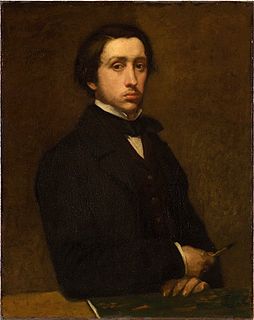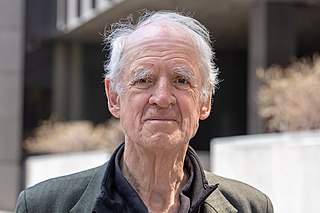A Quote by Erich Fromm
Our main way of relating ourselves to others is like things relate themselves to things on the market. We want to exchange our own personality - or as one says sometimes, our "personality package" - for something.
Related Quotes
Modern man has transformed himself into a commodity; he experiences his life energy as an investment with which he should make the highest profit, considering his position and the situation on the personality market. He is alienated from himself, from his fellow men and from nature. His main aim is profitable exchange of his skills, knowledge, and of himself, his "personality package" with others who are equally intent on a fair and profitable exchange. Life has no goal except the one to move, no principle except the one of fair exchange, no satisfaction except the one to consume.p97.
Our whole culture is based on the appetite for buying, on the idea of a mutually favorable exchange. .... For the man an attractive girl - and for the woman an attractive man - are the prizes they are after. 'attractive' usually means a nice package of qualities which are popular and sought after on the personality market. What specifically makes a person attractive depends on the fashion of the time, physically as well as mentally. ... Two persons thus fall in love when they feel they have found the best object available on the market, considering the limitations of their own exchange values.
All of us are prone to excuse our own mediocre performance. We blame our misfortunes, our disfigurements, our so-called handicaps. Victims of our own rationalization, we say silently to ourselves, 'I'm just too weak,' or 'I'm not cut out for better things.' Others soar beyond our meager accomplishments. Envy and discouragement take their toll. .
Because crime stories reveal an aspect of our personality that everybody has, but which we normally keep very deeply hidden. We like to talk about the good sides of ourselves. We don't like to talk about our hatreds, our distrusts of one another, our secrets, but crime stories drag those things to the surface and consequently they fascinate people and always have throughout all history.
When we get out of the glass bottles of our ego, and when we escape like squirrels turning in the cages of our personality and get into the forests again, we shall shiver with cold and fright but things will happen to us so that we don't know ourselves. Cool, unlying life will rush in, and passion will make our bodies taut with power, we shall stamp our feet with new power and old things will fall down, we shall laugh, and institutions will curl up like burnt paper.
This solidarity can grow only in inverse ratio to personality... Solidarity which comes from likenesses is at its maximum when the collective conscience completely envelops our whole conscience and coincides in all points with it... when this solidarity exercises its force, our personality vanishes, as our definition permits us to say, for we are no longer ourselves, but the collective life.
It seems to me that today, if the artist wishes to be serious - to cut out a little original niche for himself, or at least preserve his own innocence of personality - he must once more sink himself in solitude. There is too much talk and gossip; pictures are apparently made, like stock-market prices, by competition of people eager for profit; in order to do anything at all we need (so to speak) the wit and ideas of our neighbors as much as the businessmen need the funds of others to win on the market. All this traffic sharpens our intelligence and falsifies our judgment.
There are things we never tell anyone. We want to but we can't. So we write them down. Or we paint them. Or we sing about them. It's our only option. To remember. To attempt to discover the truth. Sometimes we do it to stay alive. These things, they live inside of us. They are the secrets we stash in our pockets and the weapons we carry like guns across our backs. And in the end we have to decide for ourselves when these things are worth fighting for, and when it's time to throw in the towel.
We define our identity always in dialogue with, sometimes in struggle against, the things our significant others want to see in us. Even after we outgrow some of these others—our parents, for instance—and they disappear from our lives, the conversation with them continues within us as long as we live.
I think we all have our own personality, unique and distinctive, and at the same time, I think that our own unique and distinctive personality blends with the wind, with the footsteps in the street, with the noises around the corner, and with the silence of memory, which is the great producer of ghosts.




































